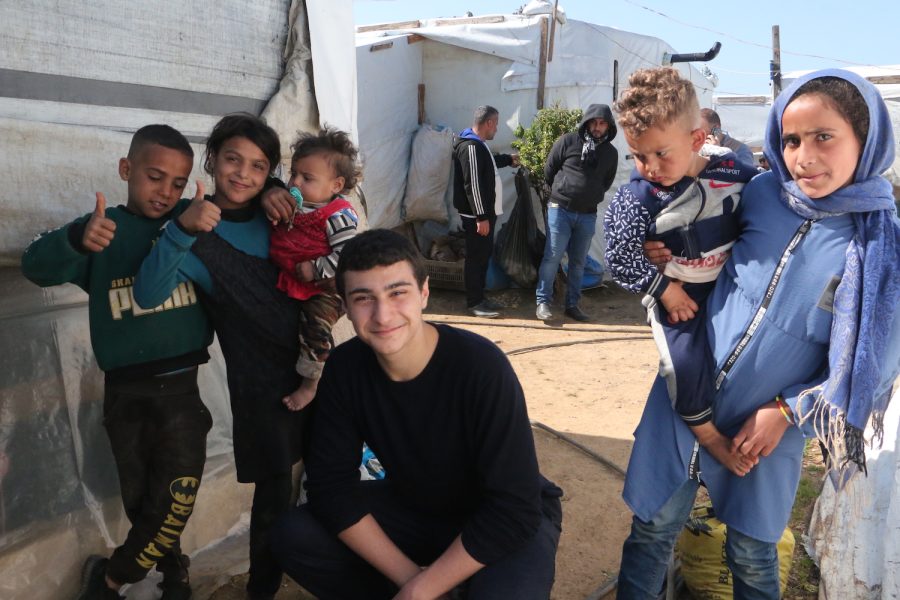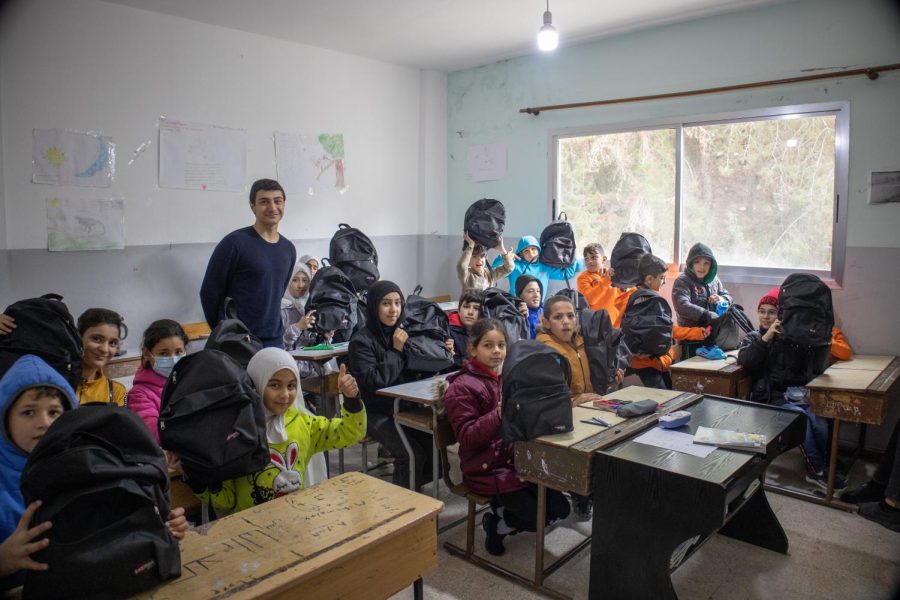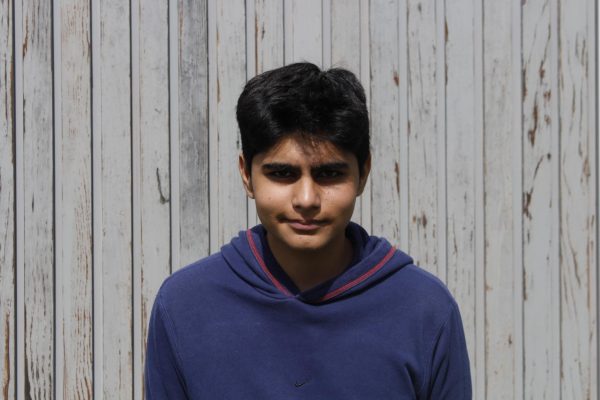After the Russian invasion of Ukraine in 2022, Bassel Ojjeh (’25) said he recalled the detrimental impacts of war occurring in his home country, Syria, inspiring him to tackle the crisis.
“The war in Ukraine reminded me of my duties to help the people from my country, especially the current generation of Syrian child refugees growing up in a country that no longer offers basic education,” he said.
The Syrian Civil War, which has been ongoing for 12 years, has resulted in mass violence, leaving the country ruined, impoverished and politically unstable, according to the BBC.
Ojjeh said his family members’ lives were disrupted due to the war, causing them to leave life as they knew it.
“My grandparents had to flee Syria once the civil war started,” he said. “They lost their business, home and all their possessions. When they fled to Lebanon, they had nothing left to their name.”
According to the UNHCR, the war has left an impact on 2.6 million Syrian children who hold refugee status. Furthermore, over two million Syrian refugees do not receive any form of education.
It is devastating how so many innocent children have been caught in the crossfire in this brutal conflict. Due to their predicament, I want to provide them with the education and support they need to build a brighter future.
— Bassel Ojjeh ('25)
“It is devastating how so many innocent children have been caught in the crossfire in this brutal conflict,” he said. “Due to their predicament, I want to provide them with the education and support they need to build a brighter future.”
To mitigate the harm of the crisis for Syrian children, Ojjeh said he founded H.O.P.E Syria, a charity aiming to provide education by supplying school materials to bridge the learning gap caused by the war.
When Ojjeh volunteered to assist Syrian child refugees in a school in North Lebanon, he said half of the children were orphans, prompting him to reflect on his involvement.
“Many of their fathers, mothers and siblings died in the conflict,” he said. “Whether it was being forced to serve in the army, trying to escape the country or through violence, these children are all alone.”
Ojjeh said he is in contact with local schools and understands their needs before providing the children with learning supplies.
“Sometimes, we provide schools with computers to ensure that students gain the most value out of their learning experience,” he said. “We focus on teaching students the basic but essential technological skills, such as learning how to use Google and applications such as Word, Excel and Powerpoint.”
Ojjeh said one way H.O.P.E Syria provides education to children is by supplying technology and teaching them “essential skills,” such as Microsoft Suite and how to use the internet to their advantage.
“In Lebanon, where many Syrian child refugees are now, students from disadvantaged backgrounds do not have the opportunity to work white-collar jobs simply because of their education,” he said. “All children should have equal opportunities regardless of their background, and teaching them to use technology can give children the opportunity to become teachers and doctors, professions that Syria greatly needs.”
Before the civil war, Syria boasted a literacy rate of over 90%, with 97% of children attending primary school, according to Save the Children. Ojjeh said it is a common misconception that education in Syria has always been inadequate.
“People may think that given the current situation, Syria never had a good educational system for children,” he said. “However, Syria had one of the highest literacy rates in the region prior to the civil war, and it’s really sad to see the millions of children who once had access to an education now struggle to attend school in Syria and other countries.”
Beyond technology, Ojjeh said he provides students with other school supplies for learning that many cannot afford.
“The children I met are often facing financial hardship, and getting supplies such as pencils, notebooks and backpacks can place an additional burden on families,” he said. “Equipping students to learn and excel in their classes is vital. I’ve noticed that with the right supplies, students are more motivated to learn and as a result, perform better.”
Furthermore, Ojjeh said the recent Turkey-Syria earthquake devastated the civilians in western Syria already living through the war.
“For over a decade, Syrians have already been suffering through one of the worst humanitarian crises in modern history,” he said. “The earthquake has only worsened the situation and will prolong the social and economic recovery of Syria.”
Following the earthquake, Ojjeh hosted an emergency round of donations by raising funds from parents and hosting a bake sale in the High School, ultimately raising over £3,500 to support victims. Though H.O.P.E’s objective is to provide education for Syrian refugees, Ojjeh wanted to prioritize the victims’ health and safety.
“Along with the funds raised, I traveled to western Syria, where most of the victims were,” he said. “Tents, medications and basic necessities were most desired, and that is what we delivered.”
Ojjeh said that the dire crisis in Syria required immediate attention, as many victims were suffering from destitution.
“Basic needs such as clean water, food and shelter are things that many of us take for granted,” he said. “However, in the region affected by the earthquake, these essential human needs were not met. I strived to provide these necessities to the affected people in order to help make a difference to their situation.”
With the recent earthquake, Ojjeh said there was increasing awareness about the humanitarian crisis Syria has undergone.
“While raising awareness about the situation is great, I highly encourage those who want to help to donate if they can,” he said. “If you would like to donate, ensure that your donation is going to a charity who takes little to no commissions and will direct the funds to the victims more quickly and directly.”
Ojjeh said all children should have the right to receive an education as he does, which is ultimately why he started H.O.P.E Syria.
“I am fortunate enough to attend school every day,” he said. “But for many children in Syria, that is not the case. Providing an education allows children to escape the poverty cycle and have the opportunity to pursue jobs that will provide for them and their family.”








